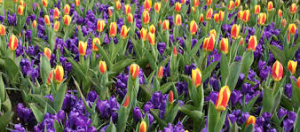Weird Gardening Terms You Need to Know
There are still a few good months to go in our efforts to manage and maintain our lawns and gardens.
While simply keeping on top of your vegetable garden and grass trimming can be work enough, August is a good time to get to know your garden a little better. So let’s explore those vaguely familiar, weird-sounding lawn-and-garden chores that you can begin applying. Who knows? Maybe you’ll find one you really like doing.

Deadheading:
This, quite simply, is the process of removing dead or dying blossoms from flowers and shrubs. The purpose for doing so is that it encourages the growth of more blooms.
Aerating:
This process pokes small holes in your grass so that air, water and nutrients can more easily penetrate the grass roots. This makes your grass stronger and greener.
Dethatching:
If healthy grass is important to you, you may want to take this step. Thatch is that layer of dead grass that sinks down into the soil line. As thatch builds, it prevents water and nutrients from leaching down into the roots.
Aphids:
These small insects are likely not an avid gardener’s favourite creature. Aphids suck sap from plants and they can cause heavy-duty damage to plants, shrubs and crops.
Biodegradable:
This word applies to natural substances that break down or decompose quickly thanks to the work of microorganisms. Food, leaves, wood, paper and cotton are all examples of biodegradable products.
Dibble:
These smallish tools might save your finger nails as the point makes holes in the ground for seeds, plants or bulbs.
Heirloom:
When plants are called heirloom, this refers to old fruit, flower and vegetable plants that have been grown by gardeners and farmers since before World War Two. These plants are generally grown in small-scale operations.
Hydroponics:
This is the art and science of growing plants without soil.
Irrigation:
This essentially means delivering water to your lawn and garden. When you sprinkle water on your flowers, whether with a watering can or hose, though there are many other methods, you are irrigating.
Symbiosis:
This is the relationship that occurs when life forms interact with each other. Sometimes it is beneficial, sometimes not. For example, marigolds release a chemical that wards off a type of worm. Beneficial, right?
Succulent:
All the rage right now, this often thick and fleshy type of plant retains water in dry climates.
Xeriscaping:
This is a type of water-saving garden that works well in drought conditions. Native flowers, plants and shrubs are ideal for this as they are accustomed to our climate. These gardens tend to be less maintenance and attract birds and beneficial insects.